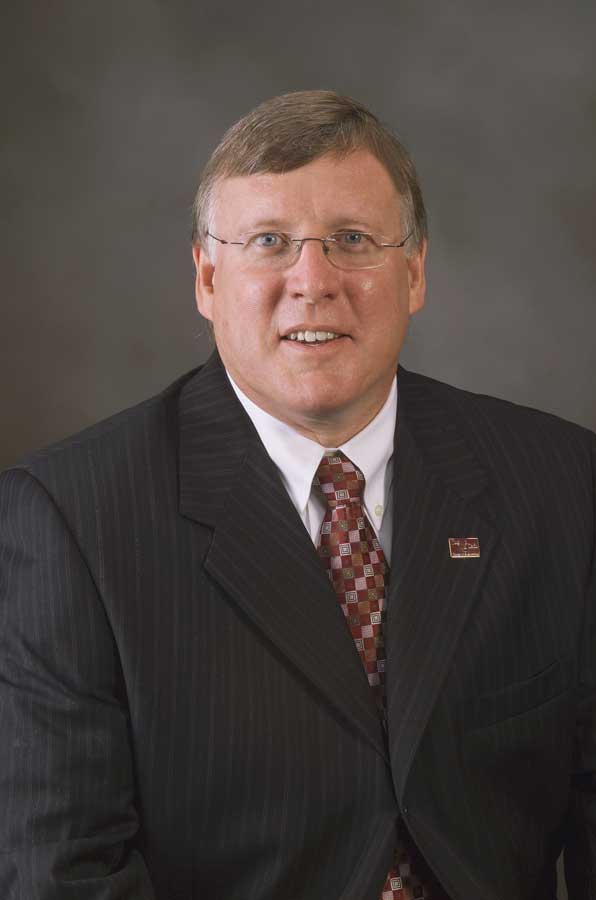Rolls-Royce's decision to build manufacturing plant will impact Virginia Tech

Virginia Tech's College of Engineering will receive three endowed chairs, $2 million in support from the state of Virginia for laboratory renovations, some graduate fellowships, and resources for specific international program efforts, as a result of plans by British-based Rolls-Royce to build a new jet engine manufacturing plant in Prince George County.
“We were extremely pleased to work with Rolls-Royce, Virginia’s Economic Development Partnership, the University of Virginia and the community college system to successfully bid on an international scale for this manufacturing plant to be located in Virginia,” said Richard Benson, dean of Virginia Tech’s College of Engineering.
According to Gov. Timothy Kaine’s office, Rolls-Royce will be investing $100 million in Virginia to establish an assembly and test facility for its civil aerospace operations. Over time, the company has options to invest up to $500 million to support future advanced manufacturing as opportunities arise for its defense and civil aerospace businesses. Additionally, the projects will create 500 new jobs.
As part of Rolls-Royce's decision to locate its facility in Virginia, Virginia Tech and the University of Virginia will become part of an innovative partnership that includes the Virginia Community College System to collaborate with the company on a variety of fronts in both engineering and business.
Virginia will provide resources to Virginia Tech, the University of Virginia, and the community colleges over a five-year period beginning in July 2009 to support a total of nine endowed professorships, as well as additional internships and graduate student support between the schools. The state will also renovate engineering laboratories at Virginia Tech and at the University of Virginia, and provide matching funds for research support provided by Rolls-Royce.
The higher education partnership will result in the creation of two major research centers: the Commonwealth Center for Advanced Manufacturing (CCAM), and the Center for Aerospace Propulsion Systems (CAPS).
CCAM will build upon existing strengths at the University of Virginia and Virginia Tech, including Virginia Tech’s Center for High Performance Manufacturing. A building to house CCAM will be constructed and operated by the University of Virginia at the Crosspointe Center in Prince George County.
The work of CAPS will be conducted in existing facilities at Virginia Tech and the University of Virginia. To provide a single point-of-contact to Rolls-Royce, the CAPS director will retain an office in the building that houses the CCAM.
The CCAM facility will house researchers and graduate students from Virginia Tech and the University of Virginia and its location will permit significant interaction among the two universities and Rolls-Royce. The facility will also support distance learning through the transmission of courses from Virginia Tech and the University of Virginia, to Rolls-Royce workers.
According to Rolls-Royce, headquartered in London, the new Virginia facility will assemble and test the RB282, the engine selected in June by Dassault to power its new super midsize business jet and potentially the first in a family of small engines for the corporate and regional jet market. More than 90 percent of corporate aircraft are manufactured in the U.S., which is today the most significant market for these products.
Virginia’s facility will also have the capability to undertake blisk manufacture for the F136 engine for the Joint Strike Fighter (JSF).
“It is no small matter when one of the world’s most successful and innovative companies brings a major engineering facility to the Commonwealth,” Benson said. “I speak for many Hokies in expressing our excitement at the opportunity to collaborate with Rolls-Royce and the University of Virginia at the forefront of research and education in aerospace propulsion systems and advanced manufacturing. This partnership will have a substantial impact on engineering education in Virginia, and I believe the high quality of our academic programs will be of great benefit to this worldwide enterprise.”




